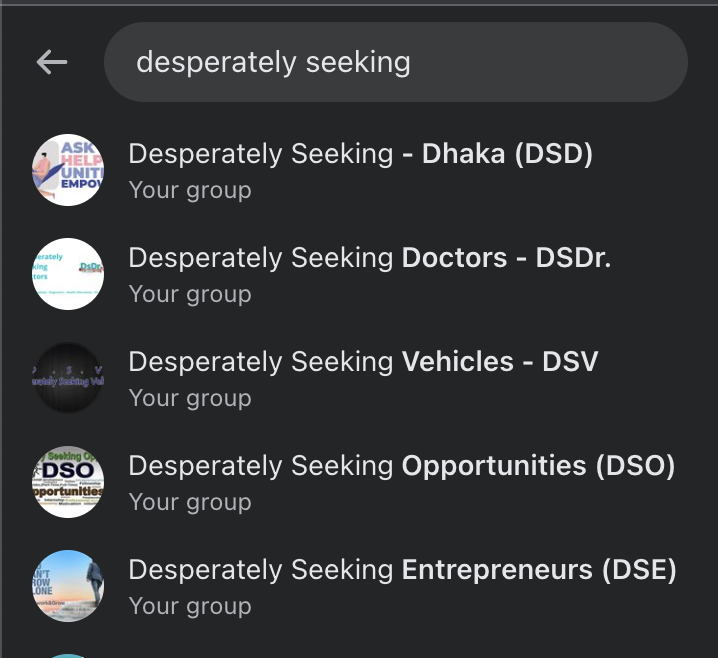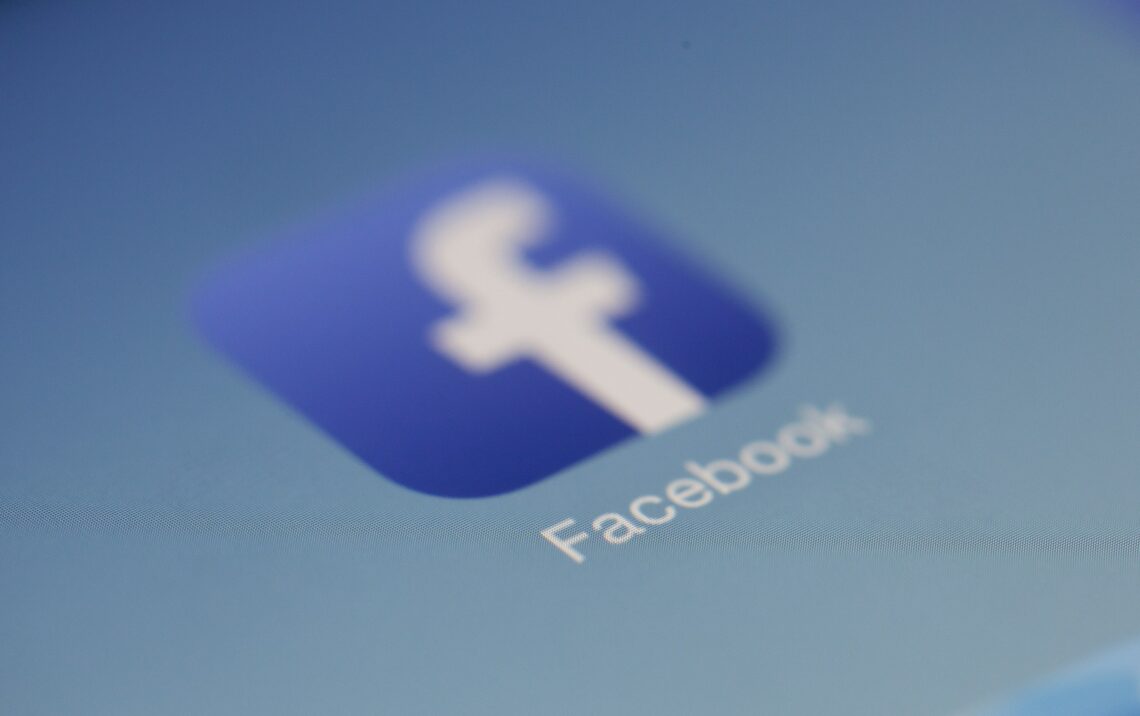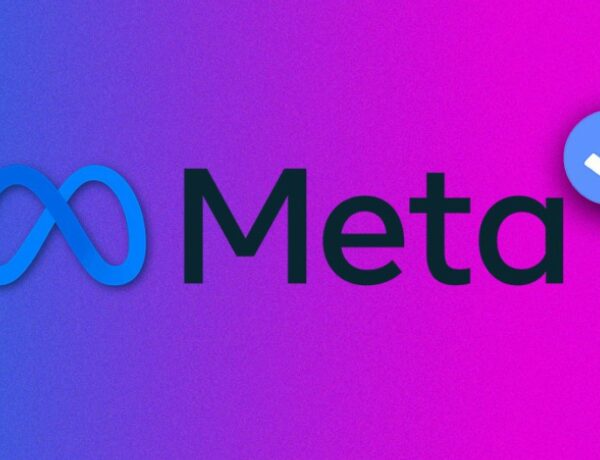Fifteen years ago, Facebook was just a social media. People would share personal updates, reconnect with friends and families, and discuss their interests with like-minded people.
It was a place to connect and share, but it wasn’t a must-have. You weren’t losing out by not being on Facebook, and you certainly didn’t feel like it was a large part of your real life if you lived in Bangladesh.
Today, Facebook isn’t just a place you go to for entertainment. It’s somehow become such an essential part of life in Bangladesh that you would be in complete darkness, unaware of your surroundings, and maybe even fall victim to common frauds and scammers if you aren’t in the loop. You could miss updates from government bodies and other authorities. In some cases, you may even be forced to be on Facebook for work and education purposes.
How did this happen?
This is one of those things that happen so gradually that you don’t notice or realize until someone points it out to you. I’m that someone, and I’m here to shine a light on the many levels Facebook has penetrated our daily lives in Bangladesh.
I want to preface this by stating the obvious: You could live in Bangladesh and not even use Facebook. In fact, there are many who don’t. But you’d find yourself in a disadvantageous situation if you aren’t.
Thin chance of it happening, but if Facebook were ever to go dark, I bet it would affect Bangladeshis many times more severely than anywhere else in the world.
In fact, to say “Facebook is the internet of Bangladesh” would not be an understatement.
Here are just a few ways Facebook became an indispensable part of life in Bangladesh.
Read this next: How to get Meta Verified in Bangladesh
Facebook as a news source
This one is obvious. The biggest source of traffic for news sites in Bangladesh is Facebook. You follow various news organizations’ Facebook pages, and you see their updates on your feed throughout the day.
If something is breaking or relevant to your interests, someone on your friend list will share it, so it’s an excellent way of staying updated with the news without actually spending time watching or reading the news. If it’s important enough, it’ll show up on your feed.
So if the teacher wants to post a message and ensure that it reaches the whole classroom digitally with the highest chance of everyone reading it, Facebook is the way to go.
But the thing is, many issues affecting our daily lives don’t really make it to the news. Some show up on the news late, while others, the majority, are never on any traditional news media.
A handful of high-traffic Facebook groups are the biggest — and often the most reliable — sources of daily affairs of life in Bangladesh, more so if you’re living in the capital, Dhaka.
Take Traffic Alert, for example. Dhaka dwellers’ biggest daily struggle is the thousands of hours wasted in traffic. Google Maps lets you see which roads are the busiest, but it never tells you why.
In the Traffic Alert Facebook group, you get real-time alerts from people navigating the city throughout the day.
An accident somewhere caused a roadblock? It’ll be on Traffic Alert.
Some VIPs are moving about, causing congestion? Somebody will post it on Traffic Alert.
Movements, protests, and even natural events will show up on the hyperactive Facebook group.
It’s been raining in Bangladesh non-stop for days. Without even being in the country, I know which roads are flooded and when they clear up. All thanks to some random people taking the time to post the update on Facebook.
Compared to Google Maps and news organizations, this group alone, or similar ones with the updates, is massively helpful and can make your life in Dhaka a lot easier in Dhaka.
Facebook for a helping hand
Information can be hard to find.
But post it on the right Facebook group, you could find out anything you want.

Hundreds, if not thousands, of Facebook groups exist to help people with their daily necessities in Bangladesh. DSD, or Desperately Seeking – Dhaka, is a prime example of that. Many different groups share the name or similar names, but their purpose remains the same.
These general interest groups can help you find information about nearly anything. From basic daily life questions like where to buy a particular type of baby product to more unique situations like how to correct your name on the National ID card (this one may not be that unique, though!), someone has the answer, and they will help you if you post on these groups.
Are you an entrepreneur looking to connect with other entrepreneurs for help? There’s Desperately Seeking Entrepreneur. Looking for some doctors’ help? There’s Desperately Seeking Doctors.
There are even popular groups for users of certain brands or services. Apple Users of Bangladesh, Bank Card Users of Bangladesh, Haval Users of Bangladesh, Uber Users of Bangladesh….the list goes on. It ranges from very broad or super specific to a product. Some of these groups may not have a lot of members, but they are tight-knit and helpful communities.
Facebook for education
The university I went to uses Moodle, an elaborate learning management system that helps connect teachers with students. Teachers can issue assignments, allowing their cohort of students to submit their classwork, discuss learning materials, get their assignments graded, and so on.
It’s like Google Classroom but much more feature-rich, although Google’s version is far easier to use.
But you know what we really used to communicate with teachers and the rest of the class? Facebook Groups.
If you’ve got something to sell, Facebook is where you’ll sell it fast.
That’s right; there hasn’t been a single course that didn’t have its own Facebook group. And I asked around, it’s the same in other private universities in Bangladesh despite the fact that many of them also use Moodle.
To be honest, I can see the appeal. Most students — and teachers — are always on Facebook anyway. So if the teacher wants to post a message and ensure that it reaches the whole classroom digitally with the highest chance of everyone reading it, Facebook is the way to go. Because you’d receive an instant notification the moment something was posted on the group.
The tech enthusiast in me admired Moodle’s elaborate options to do nearly everything you needed, but the benefits of using Facebook outweighed its limitations. It did, indeed, make life easier.
Facebook at workplaces
I remember a period when using Facebook while at work could be considered wasting company time and resources. Perhaps it still is, but I worked at companies — and know of others — where Facebook groups are used to communicate within small teams.
Yup, that’s right. Daily standups, assignments, general discussions, and team announcements. All made on Facebook. While tech companies utilize more mature communication tools — like Microsoft Teams or Slack — many other small businesses still use Facebook to communicate with employees.
Facebook Messenger is particularly popular in Bangladesh, and many small businesses use Facebook Messenger groups for daily communication with their employees.
Facebook as a marketplace
Facebook Marketplace, a dedicated section for connecting buyers and sellers, may have been a fairly recent addition to the social network, but Facebook groups dedicated to buying and selling have been popular in Bangladesh for far longer.
Even with Facebook Marketplace, there are no less than hundreds of Facebook groups dedicated to buying and selling used products. Just like the ones for helping people out, these buy-sell groups can be for general stuff or focused on specific types — like gadgets or beauty products.
If you’ve got something to sell, Facebook is where you’ll sell it fast.
And it’s not just true for used products.
Facebook for eCommerce
Also known as F-Commerce, Facebook is where many, many entrepreneurs and small businesses have found tremendous success. The customers are there, and Facebook lets you promote your products to the right audience, making it easier than ever to get customers for budding businesses.
Imagine a platform where ads from a luxury car brand like BMW appear next to a live video of someone selling clothing from the comfort of her home. You couldn’t have imagined that 15 years ago. Now it’s real.
Although browsing for products on Facebook can be daunting — which is why I ask every business owner to have their products listed on a website — it has enabled businesses of all sizes to reach more customers.
So, what if…
Of course, no technology blesses society without its share of curses. But I wanted to highlight all the useful ways Facebook has made life easier in Bangladesh. If you’re reading this and you don’t use Facebook at all, you probably view Facebook differently now than you did before.
Facebook is not all about entertainment and memes, real people are helping others on the platform with real-life queries, and it does have a significant positive impact on Bangladeshi people.
But how much is too much?
I know that “What if Facebook disappeared” sounds similar to “What if the internet stopped working.” Almost no chance of that happening, and society might collapse if the latter came true.
However, I can never shake the feeling that we, as a country, have become far too reliant on Facebook. If someone’s Facebook account is hacked — a surprisingly common occurrence — they feel not just disconnected from their social network but also from the entire country.
Sounds weird, but it’s true.
I had my account disabled once
Facebook never explained why, but my account was disabled not too long ago, and I experienced the effects of being locked out of information firsthand.
Having lost access to my Facebook account, I felt like I was in the dark about everything. I had no idea what the road conditions were. I didn’t know if there were any disturbances in the road or if some VIP movement somewhere had caused congestion.
I couldn’t ask for help, and I found myself disconnected from the majority of the people I follow (many of whom are in the technology/software industry). That meant if there were any crucial developments, like a payment provider stopping their services in Bangladesh, I wouldn’t know about it.
I got my access back after a few days, but those ‘dark days’ made me see how much life in Bangladesh depended on accessing the confines of one private platform.
In an ideal world…
In an ideal world, so many aspects of our life wouldn’t be centralized in one platform.
In many other parts of the world, options exist. Want to buy/sell something? Facebook is just one of the many websites you can go to for help. Want to ask for help with something? Besides Facebook, there are Quora, Reddit, and many more niche forums and websites. The same can be said for just about everything.
Losing access to your Facebook account in most other countries would just mean minor inconveniences: getting out of touch with friends and relatives, not seeing updates from the pages you follow, etc. It wouldn’t, and it shouldn’t make you feel like you’re suddenly in the cave.
Can you live without all those Facebook groups? Sure, you can! But having access to information when needed can make life in this country of pure chaos just a little bit more bearable.
It’s just a shame all that help and information is locked behind a single key: A Facebook account.
Read this next: How to get Meta Verified in Bangladesh


2 Comments
How to get Meta Verified: Facebook and Instagram blue verification badge in Bangladesh - Hashtag Dhaka
August 12, 2023 at 12:33 pm[…] I wrote in my previous post, Facebook has become an essential part of life in Bangladesh. And if something were to happen to your Facebook account — hacked or disabled for some reason […]
Why would you pay for Meta Verified? - AIS.BLOG
August 12, 2023 at 1:12 pm[…] wrote a lengthy post the other day to demonstrate how Facebook has become an integral part of life in Bangladesh. If you read that, you’ll understand why losing access to your Facebook account, and being left […]